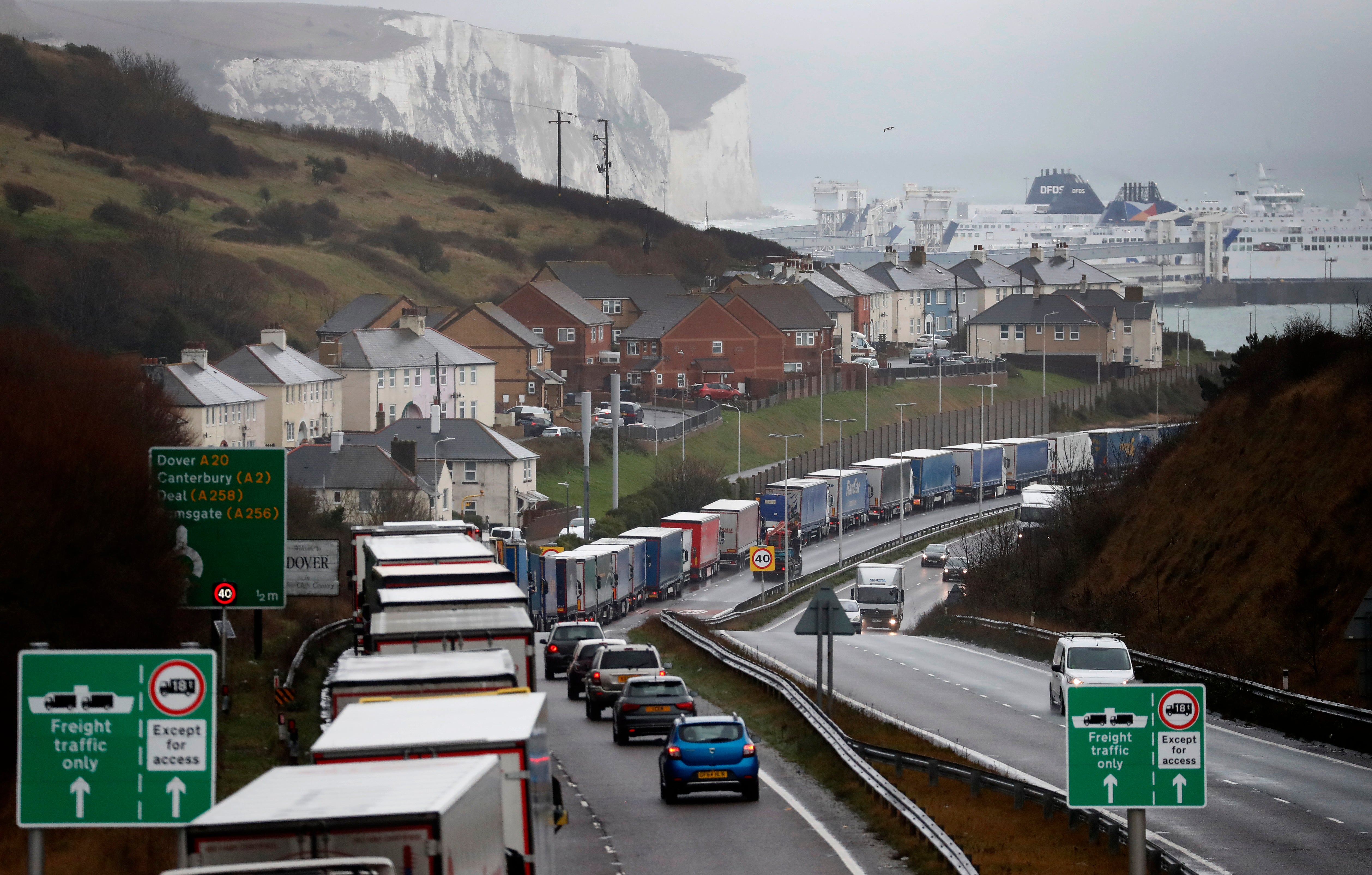Businesses plead for Brexit deal as trade talks remain stuck
British trucking firms, supermarkets and other businesses are imploring the government to strike a last-minute trade deal with the European Union, as the two sides’ leaders tell their citizens to brace for New Year upheaval in the U.K.-EU trading relationship

Your support helps us to tell the story
From reproductive rights to climate change to Big Tech, The Independent is on the ground when the story is developing. Whether it's investigating the financials of Elon Musk's pro-Trump PAC or producing our latest documentary, 'The A Word', which shines a light on the American women fighting for reproductive rights, we know how important it is to parse out the facts from the messaging.
At such a critical moment in US history, we need reporters on the ground. Your donation allows us to keep sending journalists to speak to both sides of the story.
The Independent is trusted by Americans across the entire political spectrum. And unlike many other quality news outlets, we choose not to lock Americans out of our reporting and analysis with paywalls. We believe quality journalism should be available to everyone, paid for by those who can afford it.
Your support makes all the difference.British trucking firms, supermarkets and other businesses on Friday implored the government to strike a last-minute trade deal with the European Union as the two sides’ leaders told their citizens to brace for New Year upheaval in the U.K.-EU trading relationship.
British Prime Minister Boris Johnson has said there is a “strong possibility” that negotiations on a new economic relationship to take effect Jan. 1 will fail. Johnson and European Commission President Ursula von der Leyen have set a Sunday deadline to decide whether to keep talking or prepare for a no-deal break.
“We have not yet found the solutions to bridge our differences,” von der Leyen said Friday at an EU summit in Brussels. “We will decide on Sunday whether we have the conditions for an agreement or not.”
Either way, she said, “in less than three weeks, it will be new beginnings for old friends.”
Britain left the EU on Jan. 31 but has continued to follow the bloc’s rules during a transition period that lasts until the end of the year. Months of talks on a future trade deal have failed to bridge the gaps on three issues — fishing rights, fair-competition rules and the governance of future disputes.
While both sides want a deal, they have fundamentally different views of what it entails. The EU fears Britain will slash social and environmental standards and pump state money into U.K. industries, becoming a low-regulation economic rival on the bloc’s doorstep, so is demanding strict “level playing field” guarantees in exchange for access to its markets.
The U.K. government claims the EU is trying to bind Britain to the bloc’s rules indefinitely, rather than treating it as an independent nation.
British Culture Secretary Oliver Dowden said Friday that a deal was “90% of the way there” but that the government would not accept an agreement at any price.
A no-deal split would bring overnight tariffs and other barriers that would hurt both sides, although most economists think the British economy would take a greater hit because the U.K. does almost half of its trade with the bloc.
Ahead of the year-end deadline there are already extra long tailbacks of trucks on both sides of the English Channel as U.K. companies try to lay in extra stock in case of disruption.
Britain’s Office for Budget Responsibility says a no-deal Brexit would slash 2% off U.K. gross domestic product in 2021, on top of the damage done by the coronavirus pandemic. Supermarkets say food prices will rise, with 85% of foods imported from the EU expected to face tariffs of more than 5%, according to the British Retail Consortium.
To cushion some of the shock of a no-deal split, the EU has proposed contingency measures to make sure that air and road traffic can continue for six months after Jan. 1. It also proposes that fishermen should still have access to each other’s waters for up to a year.
The plans depend on the U.K. offering similar initiatives. The British government said it would “look closely” at the proposals.
Lawmaker Tobias Ellwood, a member of Johnson’s Conservative Party, urged the two sides to show “political courage” and reach a deal.
“Let’s not walk away and cause a no-deal that would be devastating to not just Britain but to the European Union as well,” he told the BBC.
___
Raf Casert reported from Brussels.
___
Follow all AP stories about Brexit and British politics at https://apnews.com/hub/brexit